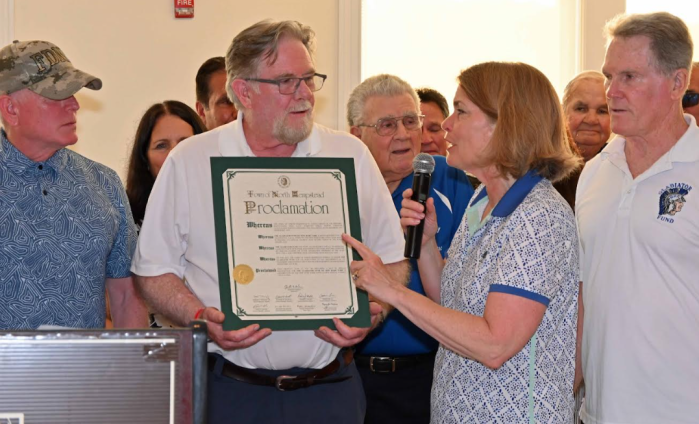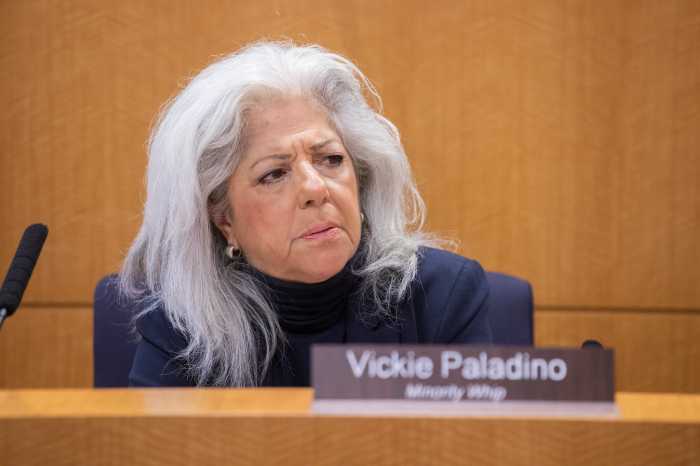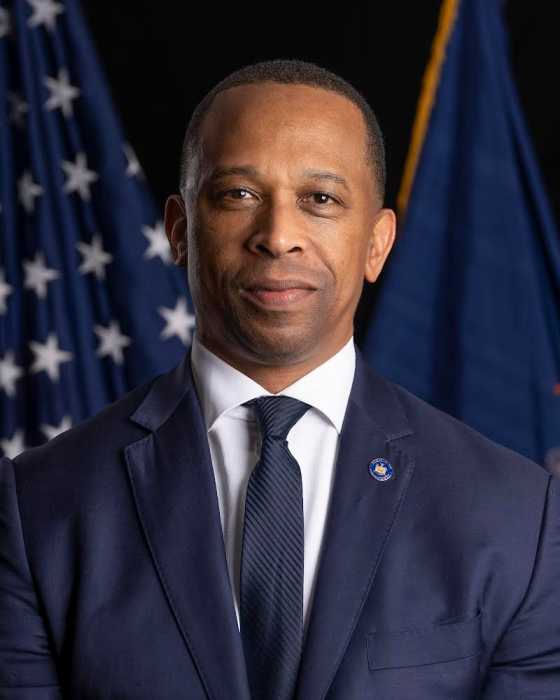The Drug Take Back Act, a new law taking effect January 6, aims to reduce opioid abuse, while at the same time prevent the contamination of our waterways.
The law requires large chain pharmacies to take back and properly dispose of unused and expired prescription medications for free. Studies show that up to 70 percent of teenagers who abuse prescription drugs get them from their parents’ medicine cabinets. The law would encourage proper disposal rather than flushing unwanted meds down the toilet into the water system.
“This initiative will improve both the environmental health and the physical health of all New York citizens,” said ex-state Sen. Kemp Hannon (R-Garden City), who proposed the legislation before losing his seat in November.
From 2010 to 2015, the number of deaths in New York State from drug overdose and chronic drug abuse increased by 71 percent. More Americans died from opioid addiction in 2016 than the total number of Americans who died during the entire Vietnam War. Nationally, there are roughly 2.5 million Americans addicted to opioids.
Several bills which contain tools to fight the opioid epidemic are expected to be reintroduced into the 2019 New York State legislative session.
One is the Senate’s version of the Medication-Assisted Treatment Bill, which would require the state’s 54 jails to provide substance abuse treatment to an overwhelming majority of inmates who are opiate-addicted. Jails would be mandated to offer addiction medications that curb opioid cravings such as injectable Vivitrol or daily doses of methadone, along with counseling and behavioral services. The bill was introduced in the state Assembly last November and in the Senate in June.
“Given that the state Legislature is likely to tackle issues relating to jail reform in 2019, I believe it will be an excellent opportunity to highlight the Medication-Assisted Treatment Bill,” says State Sen. Phil Boyle (R-Bay Shore).
Boyle said funding for the program has been included in the 2018-2019 state budget, with $200,000 each for Nassau and Suffolk jails. In all, the State Senate Task Force on Heroin and Opioid addiction secured $247 million in this year’s budget for related programs including hundreds more residential substance abuse treatment beds throughout the state.
Another package of bills was introduced by Assemb. Linda Rosenthal (D-Manhattan), who chairs the Assembly Committee on Alcoholism and Drug Abuse. One would establish a one-cent per milligram surcharge on opioid prescriptions to fund statewide drug addiction prevention, treatment, and recovery programs. Opioids for Medication Assisted Treatment, cancer and hospice care would be exempt.
Other Rosenthal bills, introduced between January and May, would require organizations to have Narcan (or Naloxone) — the antidote to a fatal opioid overdose — on site, and to have staff trained to administer the lifesaving medication. These include state offices with at least 10 employees, homeless shelters, and handlers of K9 detection dogs.
Another bill would require controlled substance prescribers to receive education regarding safe opioid prescribing. Most experts would agree that the current opioid epidemic was started from the over-prescription of addictive pain medication. This bill would amend the education law by requiring the state to create a curriculum to be offered in colleges or by providers approved by licensing boards by August 1, 2019 to include information on pain management, alternatives to opioid pain medications, identification of patients who are at risk for addiction, and training on managing substance use disorders as chronic diseases.
Senate Republicans also left some relevant bills pending. Those would limit the initial prescription of a controlled substance prescribed for acute pain from seven to three days, and require practitioners to obtain written parental consent before prescribing opioids to minors.
Finally, a bill sponsored by state Sen. Neil Breslin (D-Bethlehem) in January 2017, would increase the penalty for the sale of an opioid which leads to someone’s death to manslaughter in the first degree. The felony Class B carries a sentence of up to 25 years. Currently, the penalty for selling drugs varies from a Class A to a Class D felony sale, depending on the weight. There’s no additional penalty if the drug causes a death.
“While I strongly support an increase in criminal penalties on drug dealers who cause deaths by peddling their poisons in our communities, I think passage of this bill (manslaughter charge) is highly unlikely in a Senate and Assembly controlled by New York City-based Democrats,” says Boyle.


































